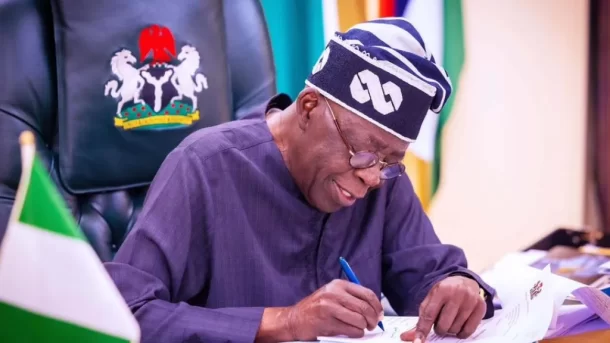President Bola Tinubu has approved an increase in the retirement age for doctors and other healthcare workers from 60 to 65 years as part of ongoing reforms in the health sector.


The National Publicity Secretary of the Nigerian Medical Association (NMA), Dr. Mannir Bature, disclosed the details of the Tinubu signing in a statement on Wednesday in Lagos.
Implementation Process
The Coordinating Minister of Health and Social Welfare, Prof. Muhammad Pate, has been directed to formally present the approval to the Council on Establishment through the Office of the Head of Service for finalization.
Pate conveyed this policy shift during a high-level meeting with the NMA President, Prof. Bala Audu, and other key stakeholders, including:
- Medical and Dental Consultants Association of Nigeria (MDCAN)
- National Association of Nigerian Nurses and Midwives (NANNM)
- Joint Health Sector Unions (JOHESU)
Discussions focused on doctors’ welfare, salary adjustments, and health sector reforms.
Salary Adjustments and Payment of Arrears
Bature confirmed that Tinubu has also approved corrections to consequential salary adjustments for healthcare workers under the Consolidated Medical Salary Structure (CONMESS) and the Consolidated Health Salary Structure (CONHESS), following the implementation of the new minimum wage.
Pate assured stakeholders that:
- Funds for salary arrears have been secured
- Disbursement to beneficiaries will begin soon
New Tariffs for Healthcare Providers
Following an extensive review initiated by the NMA, Tinubu has also approved the implementation of new tariffs for healthcare service providers, particularly benefiting members of the Association of Nigerian Private Medical Practitioners and Nurses (ANPMPN).
This aims to ensure better financial remuneration and sustainability for private healthcare services.
Government’s Commitment to Healthcare Reforms
Prof. Pate appreciated the patience and collaboration of healthcare professionals and reaffirmed the Federal Government’s commitment to improving their welfare.
He emphasized that collaboration is crucial in strengthening Nigeria’s healthcare sector and addressing key challenges, including brain drain and knowledge transfer.
The NMA and other stakeholders have renewed their commitment to pushing for further reforms and ensuring full implementation of the new policies.







